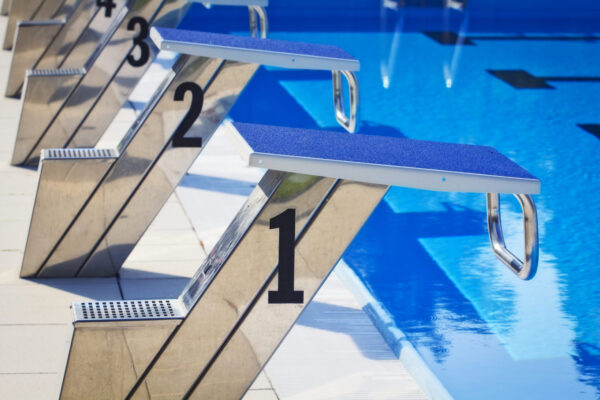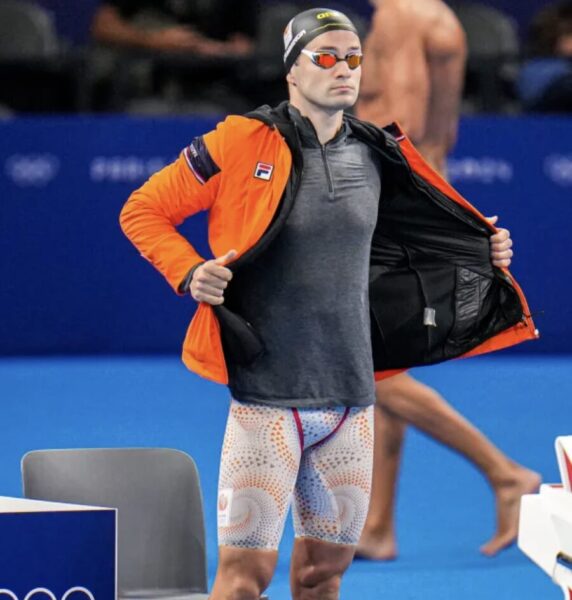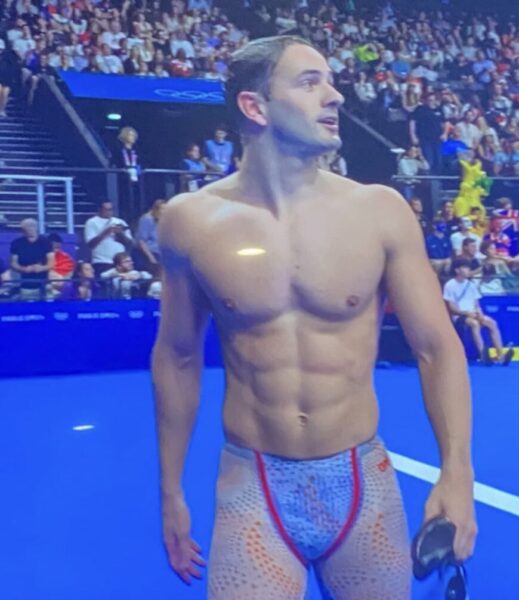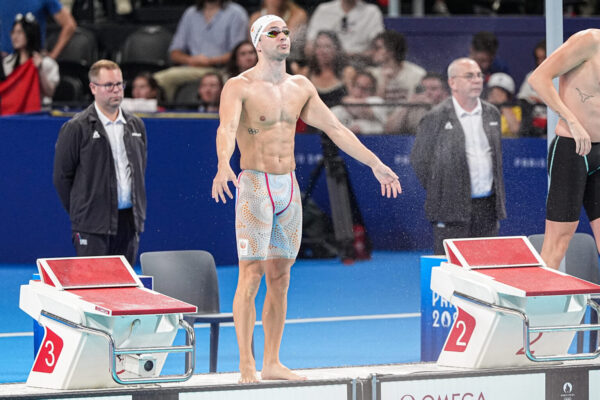What would the Olympics be without its share of meme-worthy moments?
Take Arno Kamminga from the Netherlands, who participated in the Men’s 100m Breaststroke on the first day of swimming competitions. He quickly became a social media sensation, thanks to his eye-catching swim shorts.
Even though he didn’t clinch first place, Kamminga certainly captured the internet’s fascination with his distinctive swimwear choice.

At the Olympic Games Paris 2024, held at Paris La Defense Arena in Nanterre, France, on Saturday (July 27), the 28-year-old competitor wore a pair of tightly fitted, striking trunks.
Seemingly planned by a savvy PR team, the Netherlands team chose a flesh-toned orange color for the thigh area of their trunks, creating an illusion that made Arno look nearly nude, according to News.com.au.
This daring choice caused quite a stir on social media, with one user commenting on X (formerly Twitter), “Definitely watching for the sport.”
Another simply inquired, “Name???”
Meanwhile, another user was shocked enough to exclaim, “IN PUBLIC? IS THIS LEGAL?”

Traditionally, Olympic swimmers wore minimal swimwear, often shaving their bodies to reduce drag and increase speed in the water.
The 1996 Atlanta Olympics marked a pivotal change with the introduction of the “bodysuit revolution,” as described by NBC Olympics. This event saw the debut of neck-to-knee swimsuits, including Speedo’s Aquablade model, which was favored by several medalists.
By the 2000 Sydney Olympics, the trend had shifted towards full-body suits, leading to debates about their potential performance-enhancing effects. Despite the controversy, the World Aquatics, the sport’s governing body, did not prohibit these suits, leading to their widespread use.

The 2004 Olympics continued this trend, with Speedo’s Fastskin suits becoming a popular choice among gold medalists. The 2008 Beijing Olympics introduced Speedo’s LZR Racer, acclaimed as the fastest swimsuit in the world due to its compressive, water-repellent, and chlorine-resistant fabric that minimized drag and streamlined the swimmer’s silhouette.
Despite securing second place in the Men’s 100m Breaststroke with a time of 59.12, Arno Kamminga expressed significant disappointment in his performance, sharing on Instagram, “Not what I came for,” along with a broken heart emoji.
Arno, hailing from Katwijk, also raised concerns about a doping scandal involving 23 Chinese swimmers who tested positive for the banned substance trimetazidine. The World Anti-Doping Agency (WADA) confirmed these findings in April but accepted the results of a Chinese investigation that attributed the positives to contamination.
Speaking to Reuters, Arno criticized the situation’s opacity, stating, “Everyone is questioning it, so it’s a lose-lose situation for everyone – not just for fans of swimming, but for the Chinese swimmers as well. It’s difficult to form an opinion without full knowledge.”

While Arno’s swim trunks drew laughter, other Olympic sports gear faced criticism, particularly Team USA’s track and field uniforms designed by Nike. Revealed in April, the revealing design stirred controversy, with allegations of sexism and impracticality.
Lauren Fleshman, a retired US world champion runner, criticized the design on Instagram, arguing, “I’m sorry, but show me one WNBA or NWSL team who would enthusiastically support this kit. Women’s kits should enhance performance, both mentally and physically. If these outfits truly benefitted performance, men would be wearing them too. This is not an elite athletic uniform for track and field. It’s a costume, a product of patriarchal pressures that are unnecessary for attracting attention to women’s sports.”
What are your thoughts on the swim trunks? Share your views with us!






